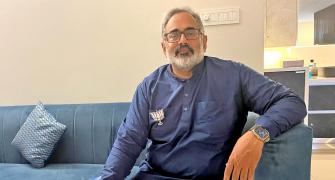Please suggest the top three performing funds, which invest directly in gold or gold mining companies. If I am to start an SIP this month, what should be my investment horizon?
--Narasimhan N
At present there are two types of gold related funds available in country. The gold exchange traded funds (Gold ETF) that invest in gold. There are currently five such funds - Reliance Gold ETF, Gold Benchmark ETF, Quantum Gold, UTI Gold ETF and Kotak Gold ETF. All of these have posted almost identical returns. UTI Gold ETF Fund and Benchmark ETF Fund are the ones with the longest tenure and their 1-year return is at around 48 per cent (as on July 9).
Besides these, you have funds that invest in stocks of gold mining, refining and marketing companies abroad. But the funds in this category have not yet completed a year. The DSPML World Gold Fund delivered 42.31 per cent return (as on July 9) since launch in August last year, while the AIG World Gold Fund is a very new player launched in May this year.
All the above funds are relatively new so it is difficult to analyse them on the basis of past performance. You can pick your investment tenure depending on your need for money and your savings goals. But generally, it is advisable to invest for the long term, which is at least 3-5 years.
I invested Rs 50,000 in the Kotak Indo World Infrastructure Fund - growth option. But this fund has shown the worst performance amongst all the funds in my portfolio. Please help me decide what can be done about this fund to avoid or minimise my loss?
--Hemant
Kotak Indo World Infrastructure Fund is a new fund launched last December. Its return since launch is -41.10 per cent (as on July 9). The fund's performance has been very poor compared to other funds focused on the infrastructure theme.
If you have invested in this fund with a long horizon in mind, then continue with it because Kotak Indo World Infrastructure is an equity-based thematic fund and such funds may not deliver good returns in the short-term but may do well over a longer period. But, if you have invested for a short period with the sole intention of booking quick profits, then you can exit from this fund.
But remember that it is a 3-year, close-ended fund. So if you redeem your units before the end of this tenure, you will have to pay an exit load which is equivalent to unamortised initial expenses.
Incidentally, there are other good funds in this category such as Tata Infrastructure Fund, UTI Infrastructure Fund and ICICI Prudential Infrastructure Fund. You could have opted for any of these since they have a track record. It is advisable to not invest in a fund for its low NAV (generally at the NFO period). Choose a proven fund instead.
Also, if you invest in a thematic or sector fund, you must be prepared for sharp downturns since they are more risky than equity diversified funds.
Some AMCs are offering insurance on Systematic Investment Plan (SIP) schemes. I want to know how beneficial is this. Also, please tell me whether I will get tax benefit if I switch my units from one scheme (equity diversified) to equity linked saving scheme in the same mutual fund company.
---Sanjay
There are some fund houses that offer a life insurance benefit if you opt for a systematic investment plan in their schemes. It was initiated by DSPML Mutual Fund in 2005 with the name of Super SIP.
Some other players like Birla Sun Life Mutual Fund, Kotak Mutual Fund and Reliance Mutual Fund have come out with the same concept. You will have to look into the details to see which one suits you. For instance, here are some questions you can ask as a guideline.
- Is there a minimum amount that has to be invested in the SIP?
- Should the SIP be of a certain tenure?
- Are all equity schemes of AMC, eligible or is it offered only on certain schemes?
- Will the insured amount be given to the nominee or be used to continue with the SIP so that the investment plan continues?
- Will all the insurance expenses be borne by the AMC?
- Is there any age limit to avail of this scheme?
The answer to your second question is affirmative. if you switch your units from one scheme to Equity Linked Saving Scheme (ELSS) of the same AMC after paying the entry load (if applicable), you can avail of the tax benefit from the tax-saving scheme.
I have invested in two ELSS schemes in 2007 - HDFC Long Term Advantage and SBI Magnum Tax Gain in the dividend reinvestment option. Is it true that I cannot redeem my units unless the scheme does not declare dividend for at least three consecutive years? And, can I now convert from the dividend reinvestment to growth option. If yes, then how?
--SC Rawat
All tax saving schemes have a three-year lock-in period. So if you have invested in an equity linked savings scheme (ELSS), then you cannot redeem any amount invested in it before three years from the date of the investment. This will also include dividend reinvestment and for this, the lock-in period will be three years from the payment of the dividend amount.
The lock-in applies separately corresponding to each investment, as in the case of a systematic investment plan.But if you want to change your initial choice of dividend reinvestment and want to opt for the growth option instead, you can do so anytime as it does not amount to any transaction.








